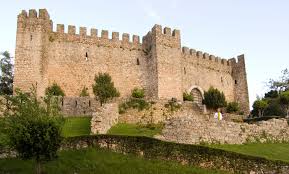Historical Evolution of Newspapers in Portugal
Early Beginnings and Influences
The history of newspapers in Portugal stretches back to the 17th century with the publication of the “Gazeta,” the first Portuguese newspaper, in 1641. This early period was heavily influenced by political and religious powers, which often dictated the flow of information. The press during this time was a tool for disseminating official decrees and religious sermons. As literacy rates began to climb and the printing technology improved, more newspapers emerged, often reflecting diverse political views and catering to different social classes.
Impact of Political Changes
Portugal’s political landscape has had a profound impact on its newspapers. The liberal revolution in the 19th century marked a significant shift as it led to the emergence of a freer press environment. However, this freedom was not consistent, as the Estado Novo regime in the 20th century imposed strict censorship, controlling and manipulating the press to serve the state’s interests. It was only after the Carnation Revolution in 1974 that the press in Portugal truly experienced freedom of expression, paving the way for a more dynamic and diverse media landscape.
Transition to Digital Media
The digital age brought sweeping changes to the newspaper industry in Portugal. As the internet became more accessible, traditional print media faced the challenge of adapting to new digital platforms. Many newspapers launched online versions, and some transitioned entirely to digital formats. This shift not only changed how news was consumed but also how it was produced, with real-time updates and multimedia content becoming standard. Despite these advancements, the transition has not been without challenges, such as maintaining revenue streams and combating the spread of misinformation. This evolution continues to shape the way Portuguese society engages with news today.
Major Newspapers and Their Influence
Leading National Publications
In Portugal, the newspaper landscape is dominated by a few national heavyweights. “Público” and “Diário de Notícias” are two of the most influential, with “Público” known for its comprehensive reporting and “Diário de Notícias” for its deep historical roots. “Expresso” is another major player, often regarded for its investigative journalism and weekend editions that delve into politics and culture. These publications not only inform the public but also shape the national discourse, providing platforms for debate and discussion on key issues.
Regional and Local Newspapers
Despite the dominance of national newspapers, regional and local publications hold a special place in the hearts of many Portuguese. Papers like “Jornal de Notícias” and “Correio da Manhã” offer a more localized perspective, focusing on regional news and events that resonate with local communities. These outlets are trusted sources of information, especially in times of crisis, as they provide updates and insights relevant to their specific regions. The importance of these newspapers is highlighted by their role in maintaining community ties and fostering local identity.
Role in Shaping Public Opinion
Portuguese newspapers play a crucial role in shaping public opinion. Through editorials and opinion pieces, they influence how readers perceive political events, social issues, and economic developments. This is particularly evident during election seasons, where newspapers often endorse candidates or political parties, swaying public sentiment. Moreover, in a digital age where misinformation can spread rapidly, newspapers are seen as bastions of credibility, offering fact-checked, reliable information that helps readers form informed opinions. As the media landscape evolves, the role of newspapers in guiding public thought remains as important as ever.
Challenges Facing the Newspaper Industry
Economic Pressures and Sustainability
The newspaper industry in Portugal is grappling with economic fragility, which has left it vulnerable to commercial interference and ownership influence. The COVID-19 pandemic further exacerbated these issues, leading to the closure of several regional newspapers. This downturn has been a significant blow to local journalism, which was already struggling to stay afloat. The industry’s reliance on traditional revenue streams like print sales and advertising has proven unsustainable in the digital age, forcing many outlets to seek public sector support to survive.
Impact of Digital Transformation
Digital transformation has been both a blessing and a curse for newspapers. On one hand, it has allowed for a broader reach and faster dissemination of news. On the other, it has disrupted traditional business models. Social media platforms have taken over key functions of news organizations, becoming the primary gatekeepers of information. This shift has led to a decrease in control over content distribution and a reliance on algorithms that prioritize engagement over quality. As a result, many publishers have found themselves struggling to maintain their brand identity and journalistic standards in an environment that favors quick, shareable content.
Addressing Misinformation and Disinformation
The rise of digital media has also brought about a surge in misinformation and disinformation. The pressure to publish quickly, combined with the “tyranny of clicks,” has sometimes led to less rigorous fact-checking processes. Journalists face time constraints and a demand for high volume, which can compromise the quality of reporting. Fact-checking initiatives have emerged as a response to these challenges, aiming to restore trust in journalism by ensuring accuracy and reliability. However, the battle against false information remains ongoing, as platforms continue to prioritize content volume over veracity.
The Role of Digital Libraries in Preserving Newspaper Heritage

Hemeroteca Digital de Portugal
The Hemeroteca Digital de Portugal is a treasure trove for anyone interested in Portuguese newspapers. It’s like a time machine that lets you explore old newspapers and magazines from the comfort of your home. This digital library makes it easy to find newspapers from different times and places in Portugal. You can search by title, author, or even the date the newspaper was published. It’s a fantastic resource for students, researchers, and anyone curious about history.
Access to Historical Archives
Digital libraries have made accessing historical archives a breeze. Gone are the days when you had to sift through dusty old papers in a library basement. Now, with just a few clicks, you can access a wealth of information online. These archives are crucial for understanding the past and how it shapes the present. They offer insights into historical events, cultural shifts, and the evolution of journalism. For instance, you can track how reporting styles have changed over the years or how certain events were covered by the media.
Educational and Research Opportunities
Digital libraries aren’t just about preserving the past; they’re also about educating the future. They provide endless opportunities for learning and research. Students can use these resources to dive deep into their studies, whether they’re researching for a paper or preparing for a debate. Researchers can access a vast array of data that can help them draw new conclusions and theories. Plus, these libraries often have tools and features that make research easier, like search filters and citation tools. It’s a win-win for education and research.
The Future of Newspapers in Portugal

Innovations in Journalism
Journalism in Portugal is on the brink of transformation. As traditional newspapers face declining readership, innovative approaches are emerging. Newsrooms are experimenting with interactive storytelling and multimedia content to engage readers. Podcasts and video journalism are gaining traction, offering dynamic ways to present news. Additionally, data journalism is becoming more prevalent, providing in-depth analysis and insights that traditional reporting may not cover.
Potential for Growth and Adaptation
Despite challenges, there’s room for growth in the Portuguese newspaper industry. Digital subscriptions are on the rise, as readers increasingly turn to online platforms for news. Newspapers are exploring diverse revenue streams, such as offering exclusive content and hosting events. Collaborations with tech companies are also being considered to enhance digital presence. The key is adaptability, ensuring content remains relevant and accessible to a diverse audience.
Engagement with Younger Audiences
Capturing the attention of younger audiences is crucial for the future of newspapers in Portugal. Social media platforms are becoming vital channels for reaching this demographic. Newspapers are tailoring content to be more relatable and engaging for younger readers, often using informal language and humor. Initiatives like live Q&A sessions and interactive polls are being introduced to foster a sense of community and involvement among young readers.
The Impact of News Deserts on Portuguese Society

Understanding News Deserts
In Portugal, the concept of “news deserts” refers to areas where local news coverage is scarce or nonexistent. This phenomenon has been growing, with a notable increase in municipalities lacking registered media outlets. As of 2021, 61 municipalities, or about 19.8% of the country, were identified as having no media presence. This absence of local journalism creates a vacuum that can lead to the spread of misinformation and disinformation, as communities lack reliable sources to verify facts.
Consequences for Local Communities
The lack of local news has several negative implications for communities:
- Reduced Civic Engagement: Without local news, residents are less informed about local government actions and community events, leading to lower participation in civic activities.
- Increased Polarization: The absence of balanced reporting can result in communities becoming more polarized, as individuals may turn to social media or other less reliable sources for information.
- Democratic Decline: A well-informed public is crucial for a healthy democracy. News deserts can weaken the democratic process by limiting access to information necessary for informed decision-making.
Efforts to Revitalize Local Journalism
Despite these challenges, there are initiatives aimed at revitalizing local journalism in Portugal:
- Community Initiatives: Some local communities are taking the initiative to create their own news platforms, often relying on volunteers to gather and report news.
- Government Support: The Portuguese government has recognized the importance of local journalism and has implemented measures to support struggling media outlets.
- Collaborative Projects: Partnerships between local media, educational institutions, and non-profits are being formed to promote sustainable journalism practices.
The lack of coverage presents significant challenges, especially for youth identity and participation, as highlighted in a recent study. Addressing these issues is crucial for maintaining informed and engaged communities across Portugal.










